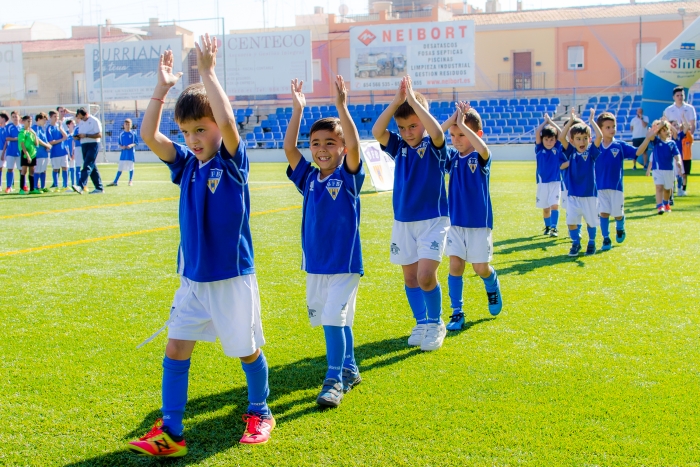SOCCER: The University of Life
Across the world, soccer has been the means to the good life for numerous people. Most professional footballers take to the sport for the fun of kicking the ball and earning a good living. However, there are many life lessons that come with a career in soccer. Because the average player would usually not play past their mid-thirties (late thirties for goalkeepers), soccer players make conscious efforts during their careers to prepare for the rest of their lives after the game.
But even those who play soccer only for a short time or recreationally have lots to gain. It is a sport, with artistic and scientific aspects. Winning a game or a championship is like a voyage, requiring strategic and calculated decisions. Because it is a team sport, soccer teaches a sense of responsibility to teammates, coaches and supporters. As though it were a university of life, playing soccer provides an opportunity to assimilate invaluable qualities. We will now have a look at these.
Sacrifice
To play soccer well, an individual has to make personal sacrifices. A typical professional soccer player has limitations pertaining to diet and bed times, especially close to game days. If you want to play soccer, you would have to consciously eat foods that keep you healthy and in shape. A soccer player also knows there will be restrictions on late-night hangouts and parties, unless during off-seasons. Attending practice and performing to the expectation of coaches requires a sound mind and healthy body, neither of which can be achieved without personal discipline.
When these habits become ingrained in an individual, they form part of a disciplined character that remains useful in every sphere of life. Globally renowned entrepreneurs are noted for being great deferrers of gratification in pursuit of greater ambitions.
Accountability
No player wins a soccer match all by himself. Every player performs in unison with a team to achieve a common goal. In that sense, playing soccer comes with the knowledge that what you do affects others. Players give a good account of the trust placed on them by coaches, teammates and fans by putting in their best work every time. This quality is often required at work, in school and everywhere else within society; people are often going to trust us to do our best work, and we can expect to be held accountable when we don’t.
Decision making
When a soccer player runs towards opposing defenders, he will usually have his teammates signaling to him that they are available. In that moment, the player will have a decision to make: do I pass to my teammate or do I try to dribble past this defender? This is one of many decisions a player will often have to make in soccer. Some decisions are made before games too, like declining a late night party the day before a practice match, or choosing a healthy smoothie over chocolates. Often times, soccer players take a gamble on the pitch by trying a speculative shot towards goal, or when a goalkeeper leaves his post in the last minute of a game to go for a corner kick. Risk taking is an essential life skill and knowing how to make decisions will always come in handy.
Effective Communication
Good coaches are good communicators; so are good players. From the experience of playing soccer, an individual is able to impart ideas to others and get people to understand what is required of them. Team play in soccer requires players being “in sync” with each other to achieve common objectives. In like manner, in the work place, good teams are formed when co-workers are able to communicate and understand ideas, and to implement strategies.
Consistency
Playing soccer teaches us about the need to maintain a high standard in the quality of our performance. Competitive and recreational soccer requires a player to always try to be better today than they were yesterday. Consistency is showing up, putting in work and consciously trying to do better than before.
Responsibility
A parent may be the initial influence for a child to play soccer but once the child takes on the challenge, it becomes his personal duty to play well. A soccer player takes ownership of his errors and any inconsistency in performance. Good soccer players don’t apportion blame to others for something they should have done.
Individualism vs Teamwork
There are useful individual honors created to reward soccer players, but no single player wins an award or trophy outside of what he does in a team. Good soccer players recognize the inputs of their teams in individual achievements and always put the team first when analyzing their performance. This is a valuable quality for anyone to have; putting the team first, without diminishing one’s personal contributions to the success of your team.
Leadership
Many individuals in soccer history have transitioned from playing the sport to becoming political leaders. Examples include former World Best Soccer players George Weah of Liberia and Romario of Brasil. But apart from political leadership, the qualities mentioned so far can make a soccer player a person whose character causes influence. Effective communication, accepting responsibility and being accountable are all invaluable attributes of top leaders around the world.
Conclusion
Indeed, there are many qualities to be derived from playing soccer. Not only is there an opportunity to earn a living from one’s hardwork on and off the pitch, but the skills and knowledge provided by active participation in the sport are replicable at all places and in all times. This surely ranks playing soccer as one of the world’s top universities of life!
REFERENCES
Soccer Teaches Many Lessons On and Off the Field https://www.usyouthsoccer.org/soccer_teaches_many_lessons_on_and_off_the_field/
Life Skills Kids Learn at Soccer Camp
https://www.whitbyschool.org/passionforlearning/6-life-skills-kids-learn-at-soccer-camp
Who is George Weah, Liberia’s new president?
https://www.bbc.com/news/av/world-africa-42725229/who-is-george-weah-liberia-s-new-president
Brazil ex-football star Romario seeks Rio state governor post

